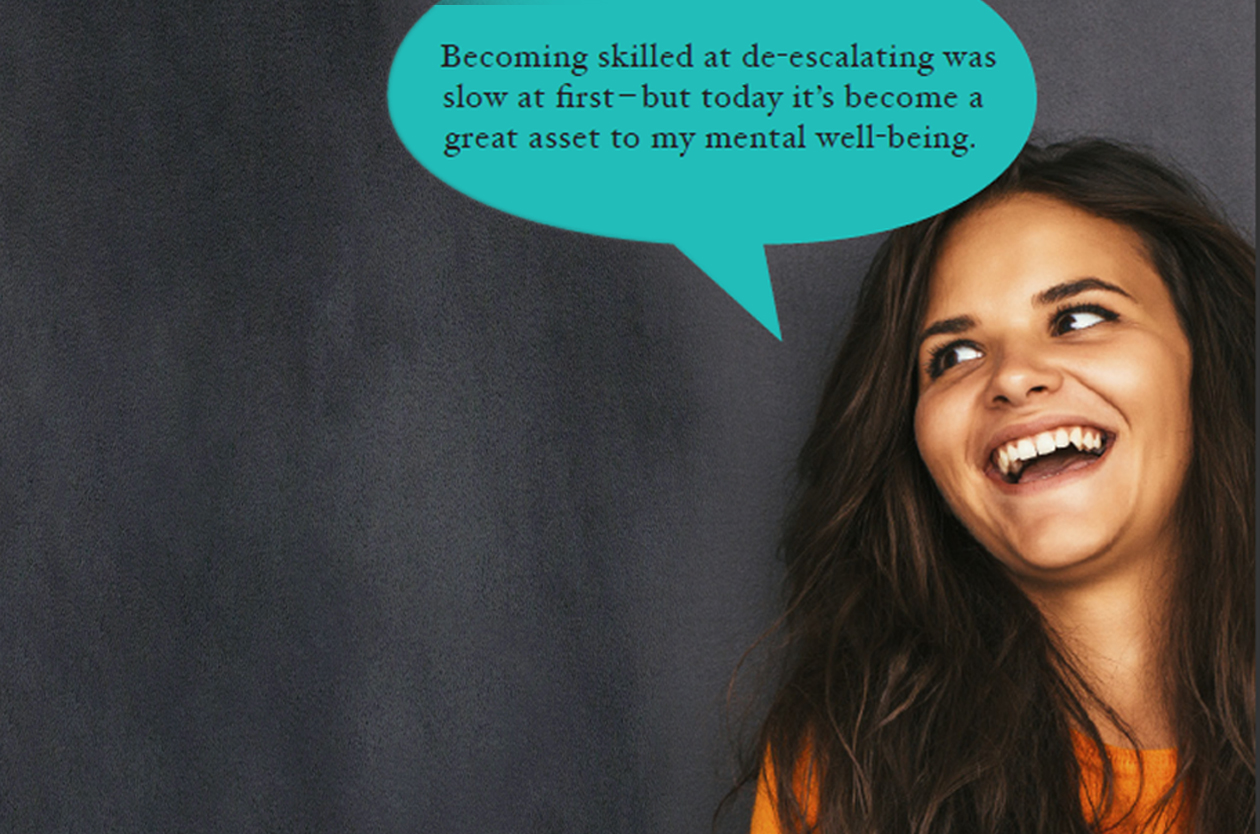
When my caveman ancestor found himself face-to-face with that saber-tooth tiger, I can guarantee you that he got pretty escalated. But getting escalated helped him stay focused and, because of energy-boosting hormones, have the energy to execute an effective escape plan…something that he apparently was successful at or I wouldn’t be here sharing these thoughts.
Becoming escalated and moving into the Unhealthy Stress zone isn’t the problem. It’s when we spend the bulk of our time there, or, even worse, we remain there—that’s problematic. There is no compelling reason why we need to spend a lot of time in an escalated state. All we need to do is to de-escalate and return to a regulated state i.e. the Healthy Stress zone.
If you want to minimize the time spent in the Unhealthy Stress zone, the first step is to visualize your life as such. Achieving that life, however, is a process. Change doesn’t happen overnight. It takes commitment. It requires a change in how you see and respond to the stressors in your life. This takes time. It may also mean falling flat a few times. But, with practice, with dedication, with time, you can learn the skills needed to de-escalate and make them second nature.
Before learning to de-escalate, there are two things that need to be incorporated into the process:
- You need to BELIEVE that de-escalation is possible. This may be your biggest challenge. You may believe that it’s normal to go through life in an escalated state. It’s not. Do you believe there’s nothing that you can do about your stressful feelings? Not true. If my caveman ancestor hadn’t de-escalated, he would have eventually found himself weakened and vulnerable to predators. Everyone on this planet can learn to de-escalate.
- You need to become AWARE. We are always moving around on that curve in Figure A. You need to become sensitive to when you are moving out of a regulated state. By becoming aware of changes in your stress levels, you will be able to begin using de-escalation techniques when you find yourself moving into the Unhealthy Stress zone.
The following techniques are simple in concept. They redirect your attention away from the stress and work at reversing your stress response so that you don’t feel overwhelmed or out of control. Thousands of people have learned to use these tools effectively. In fact, a recent study demonstrated that there was an 82% success rate of returning to a regulated state from an escalated state when using these techniques. Remember, though, it will take time, practice, patience, and commitment.
- Check-Ins: Social support systems have, for a long time, been determined to be effective at helping reduce one’s level of experienced stress. Turning to an empathetic friend or a Health Master Mentor can help you de-escalate in two ways:
1) It allows you to vent that excess energy instead of keeping it bottled up inside;
2) Your friend or Mentor can help you to look at your stressor from another perspective. As you learn to be aware of your own level of stress, regular check-ins can help you develop that awareness and, perhaps, help you begin reducing your stress before it becomes overwhelming.
- 2. Abraham’s Breathing: Focusing and controlling your breathing is one of the quickest and most powerful ways to re-center yourself. It is a preliminary step to meditation, prayer, rhythmic breathing, and plays an important role in exercising like cardio.
- Cardio: Research has been a demonstrating the connection between physical activity and mental health. Engaging in physical activity can play a major role in maintaining good mental health. As a technique for de-escalation, cardio activity, e.g. walking, jogging, swimming, bicycling, etc., can be extremely effective by:
1) Enabling you to vent excessive emotion and energy;
2) Shift your thoughts away from the stressor and to your body, i.e. the here and now.
- Meditation/prayer: Meditation and prayer have been used for thousands of years throughout the world. Clearing one's mind, shutting off that nagging voice, is a sure way of helping you to de-escalate.
Tune our next blog to learn the 3rd solution to reduce stress.





